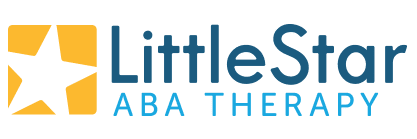Conversation with a Big Star for Little Star
In recognition of Autism Awareness Month, we will feature comments from the Little Star Center Board of Directors. This week’s Q&A is with board member Bill Brunner. Brunner was appointed to the Little Star Center Board of Directors in 2009. He is the former Chief Financial Officer for J.D. Byrider. In 2013, he was named a CFO of the Year by the Indianapolis Business Journal.
What makes you most proud about serving on Little Star Center’s Board of Directors?
The work we do to serve our children with no distractions from our mission of serving the most children we can with uncompromised quality treatment.
During your time as board member, what do you think has been one of Little Star Center’s biggest success stories?
The biggest success story occurs frequently when we share the success of the children. This can take the form of a child learning a skill that he/she previously could not perform up to transitioning to traditional education programs.
From a more grown up perspective, I take pride in management and the board’s reaction to a challenge that presented itself which likely could have impacted the quality of Little Star’s programs; the mission prevailed. Like in many organizations revenue and profit can become a cancer on the organization’s mission. Yes, the board does have the responsibility to assure the organization’s survival, but parents can be assured that the quality of service to their children will not be compromised.
What is one thing you want people to know about individuals with autism?
Having autism is not a shortcoming or a bad defect; it is a neurological condition. As individuals they have many beautiful traits that often are expressed in a level of love that those of us that are “normal” cannot understand or express.
What do you see for the future of autism services in Indiana? Which areas of service are in need of growth?
I wish I could be optimistic on this topic, but I see the environment surrounding the ability to serve children will continue to be challenging for the foreseeable future. The challenges will come from the ability to pay for services as well as groups trying to profit from this population.
The outlook from a clinical perspective, however, is bright. I am encouraged by the increasing amount of research in treatment methods and tools for aiding in treatment. In particular, tools like electronic tablets (i-pads) offer the chance to improve communication for individuals with autism.
How has being a part of LSC impacted you personally?
This is simple; having the opportunity to serve the autistic community reminds me that serving our fellow persons and particularly our children is imperative to fulfilling our social responsibilities.
